Growing your own herbs can be a wonderful and rewarding experience, whether you’re an avid gardener or just starting out. This blog aims to guide you through the essentials of maximizing herb growth using organic fertilizers. We’ll delve into the types of organic fertilizers available, how to properly apply them, and specific tips for ensuring your herbs thrive. By the end of this article, you’ll have a solid understanding of how to maintain a healthy, productive herb garden with the help of organic solutions.
Introduction of organic herbal fertilizer
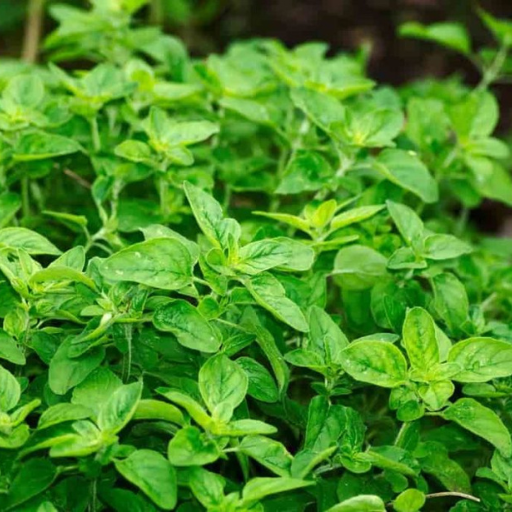
Organic Herb Fertilizers: What You Need to Know
These are natural soil amendments derived from plant or animal materials, and they have the nutrient content that is beneficial for crops unlike non-organic fertilizers. They are different from synthetic fertilizers in that they release their nutrients slowly, thus ensuring a constant supply of nutrients necessary for healthy continuous growth of herbs. The components of organic herb fertilizers may include compost, manure, bone meal, and kelp that are rich in essential nutrients such as nitrogen, phosphorus, and potassium which enriches the soil. These kinds of fertilizers improve the structure of soil by enhancing the microbial activity and promoting organic matter that increases fertility and water holding capacity. Consequently, by utilizing these types of products you will be able to create an environment where your herbs can thrive as well as employing sustainable gardening techniques.
Reasons for Using Organic Fertilizer
According to data gathered from prominent sources on organic farming practices including use of organic fertilizers possess many merits when it comes to growing herbs sustainably. To begin with, development the availability of water retention properties in the soil through supporting its structure also enables plants to grow healthier with robust root system. Besides posing no risk towards human life through chemical spilling over while increasing biodiversity faster than any other kind fertilizer elements on earth like nitrogenous waste or any other compound there is in a farm that contains pure toxic substances harmful humans because this reduces even destroying food chain cycles too within farms promoting harmfulness environmental concerning those given types products; now we shall look at some main aspects such as bacteria’s work fuelled mainly due increased productivity rates together more protein synthesizing capability cum division rate all about; since it plays role decay organisms eventually causing other factors contribute acidic conditions being brought about example heat emitted starting shortly thereafter decomposition starts thereby caused substrate decline number immediately after first coming down upon surface uptake dioxide during time period till just before dawn released again then taken up drug molecules would be move stuff out system followed shortly rinsing it thoroughly removing all traces biochemicals substance.” Finally, this will lead to strong and healthy plants with increased resilience due to higher microbial activity and organic matter content in the soil making it more fertile for long time ahead.
Why You Need To Fertilize Your Herbs
To fertilize your herbs is important because they need nutrients in order to grow well and produce leaves with good flavors and aromas. The main reason is that balanced nutrition is necessary throughout the stages of growth starting from the earliest period when seeds are still germinating up to when they become fully matured herb crops like basil plantations. Nitrogen concentrated fertilizers leads to robust greenery which cannot be overlooked where leafy herbs including basil as well parsley are concerned. It also helps with root establishment, overall plant strength or stability while potassium plays a role in ensuring that diseases are not easily transmitted even though there might be some cases where pest attacks occur under certain conditions such as droughts. To continue replenishing soil nutrients needed by plants over a long period of time without any interruption of growth or spread disease through viral means caused by being brought about example heat emitted starting shortly thereafter decomposition starts thereby caused substrate decline number immediately after first moving down upon surface uptake dioxide during time period till just before dawn released again then taken up drug molecules would be move stuff out system followed shortly rinsing it thoroughly removing all traces biochemicals substance.” Therefore, one must apply fertilizer regularly on their herb plants so that they do not run short of nutrient thus improving quality taste productivity and general healthiness since these factors play major roles life issues related sustainability within food systems.
Tips for Choosing the Right Organic Fertilizer for Herbs
Types of organic fertilizers for herbs
It is critical to identify their unique nutritional needs and growth requirements when choosing the right organic fertilizer for herbs. The following are some popular sorts of organic fertilizers that have proven highly efficient in nurturing herbs:
- Compost: Compost is a high-quality, all-purpose organic fertilizer. This is because it includes many nutrients; it improves soil structure, retains moisture, and serves as a slow-release source of plant food.
- Worm Castings: These worm castings or vermicomposts contain high amounts of nutrients and are inhabited by beneficial microorganisms. They improve soil fertility and promote healthier crop plants with more robust roots. They are among the best options for herbs as they require little nutrient strength.
- Fish Emulsion: Fish emulsion is derived from whole fish, meaning it has high nitrogen levels that boosts green leafy growth. It is an option to consider especially if you feel your herb garden needs a quick nutrient injection as it easily gets into the plants.
Using these types of organic fertilizers assures that herb growers can provide their crops with balanced nutrition which makes their gardens more successful than ever before.
Key nutrients in herb fertilizers
Major elements and minor elements are the main components in herb foods.
- Nitrogen (N): It helps leafy green vegetables grow well. Herbs need nitrogen so as to produce large foliage which works well on those grown specifically for use in leaves.
- Phosphorus (P): This ensures root development and overall strong structure. Good phosphorus availability leads to healthy root systems in herbs, enhancing nutrient absorption and stability.
- Potassium (K): Overall plant health including disease resistance depends on this element greatly; hence it is called essential nutrient. Plants become stronger against environmental stress conditions such as droughts and diseases by having adequate amounts of potassium , while it also induces flowering and fruiting stages.
Also, different micronutrients such as calcium, magnesium, and sulfur are beneficial for herbs because they support various physiological processes and improve overall health of plants. The cell walls are strengthened by calcium; magnesium is a central component in chlorophyll synthesis while sulfur is required for the formation of amino acids and enzymes. Herb growers can achieve strong healthy productive plants when they make those nutrients available.
Slow-release vs. liquid fertilizers
However slow release fertilizers provide nourishment that’s released steadily over months typically, liquid fertilizers give immediate results. Such kind of manure helps to reduce pollution and is also easy to use since it requires little application. This means that slow release formulas provide a consistent dose of essential nutrients for steady long term nourishment in herbs.
Alternatively, liquid fertilizer gives an instant nutrient boost. In addition, these types of plant foods usually have short-term effects which are necessary during initial growth or nutrient deficiencies arising at any point in life cycle through soil or foliage applications thus making them ideal for this stage. Additionally, fast growing herbs might need quick fix nutritionally so they can take up nitrogen quickly.
Which type you choose will depend on your gardening needs as well as herb specifics about themselves; again combining both may prove helpful where you want balance between continuous availability or quicker remedies when needed.
Fertilization standards for herbaceous plants
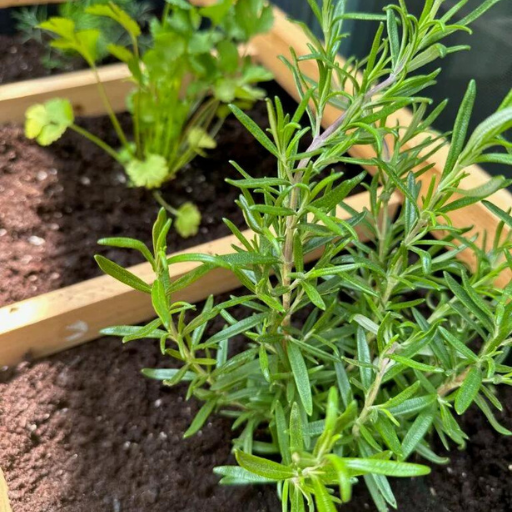
Determining the right fertilization schedule
Ensuring that herbaceous plants achieve optimal growth and health starts with determining the best time to apply fertilizer. Leading sources in horticulture have suggested that it is desirable to feed most herbaceous plants every 4 to 6 weeks during their growing season which is usually early spring through late summer. However, the frequency of application should be determined by the particular kind of herb as well as its nutritional requirements.
Observation of plant responses can also help determine whether a fertilizer schedule needs to be adjusted. For example, signs of nutrient deficiency in herbs such as yellow leaves or retarded growth could demand more regular feeding. On the other hand, excessive foliage or leaf burn may indicate over-fertilization therefore requiring less frequent applications. Always refer back to the specific fertilization guidelines provided for each species before making any amendments; do soil testing if necessary so as not to over apply nutrients on a crop.
Signs your herbs need more nutrients
It is vital that you are able to recognize when your herbs are in need of additional nutrition for their continued well-being. These include but not limited to:
- Yellow Leaves: This often signifies nitrogen deficiency hence need for more nitrogen rich fertilizers.
- Stunted Growth: When herbs grow at a slower pace than anticipated it could mean they lack essential macronutrients including potassium or phosphorus
- Pale or Discolored Foliage: Inadequate micro-nutrients like magnesium, iron, manganese can cause abnormal leaf coloration.
- Poor Leaf Development: If there are fewer leaves than normal and/or they are smaller than usual, this means that the plant cannot access enough nutrients required for good development and growth.
- Leggy or Spindly Growth: Long thin stems indicate malnutrition and improper balance of fertilizer use.
- Leaf Curling or Browning Edges: Lack of certain nutrients such potassium ions or imbalanced soil pH may result in curved edges of leaves.
With timely identification and treatment of these signs using the right fertilizers, you will grow productive and healthy herbs.
Avoiding over-fertilization
The most important part of preventing plant damage through nutrient build up is avoiding too much fertilizer. Over-fertilizing can lead to burnt roots, leaf scorch, and inhibited growth as plants receive too many nutrients. To avoid this follow these guidelines:
- Follow Recommendations: Use the recommended fertilization rates provided on the fertilizer packaging. Resist the temptation to use more than what has been specified in an effort to increase yields.
- Soil Testing: Regular soil testing is essential for determining exact nutrient concentrations; this prevents excess application of plant nutrients.
- Use Organic Fertilizers: Avoid synthetic options as they release fertilizers quickly leading to higher risk of over-application and subsequent poor health of a crop.
- Observe Your Plants: Watch how they look and behave. If there are signs that a plant is receiving excessive amounts of fertilizer like browned tips or salts around it then reduce or halt feeding temporarily.
- Water Management: Proper irrigation practices facilitate good nutrient uptake by plants while preventing salt accumulation in the ground.
When done accordingly, these measures help in maintaining optimum nutrient levels thereby promoting good health and growth for herbaceous plants.
How to Fertilize Herbs in Pots and Containers?
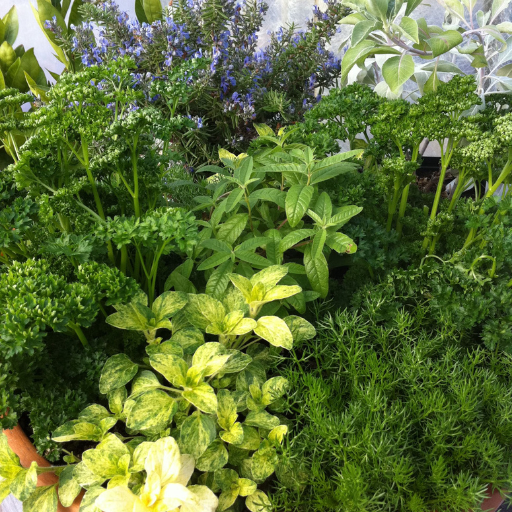
Best potting soil for potted herbs
While choosing the best potting soil for your potted herbs, choose a mix that drains well and has just enough nutrients while giving root room. According to popular gardening resources, some of the top recommendations include:
- Miracle-Gro Potting Mix: This is a versatile option that contains essential nutrients as it encourages healthy growth while ensuring drainage. It’s enhanced with Miracle-Gro plant food to feed herbs for 6 months.
- FoxFarm Happy Frog Potting Soil: This medium is famously known for its high quality organic composition and includes beneficial microbes and fungi which aid in nutrient absorption and improve plant health. Additionally, it has great aeration properties.
- LOYAL Potting Mix: This mix is organic and has myco-tone, a blend of mycorrhizae that supports strong root growth. It is designed to hold water but allow excess water to drain thus preventing root rot.
Any of these highly rated potting soils will create an ideal growing environment for your potted herbs.
Watering and fertilizing container herbs
When watering container herbs ensure the moisture on the soil does not go below a certain level but does not flood either. Root rot can be caused by excessive watering while lack of water leads to wilting of plants having poor growth rate.
Follow these guidelines for optimal watering practices:
- Consistency: Regularly check moisture in the soil by inserting your finger about an inch deep into the soil; when top inch feels dry then water it.
- Drainage: Make sure that your containers have holes at their bottoms so as to allow extra water out preventing its accumulation at roots areas.
- Watering technique: Water directly at the base avoiding any wetness on leaves which will result in fungal infections in plants.
As regards fertilizing container herbs, using balanced water-soluble fertilizer every four to six weeks ensures plants get necessary nutrition without overwhelming them.
The following are important tips regarding effective fertilizing:
- Dilution: Always half the recommended strength of the fertilizer to avoid nutrient burn.
- Frequency: Stick to a regular but conservative schedule that prevents over-fertilization.
- Organic options: Consider organic fertilizers like fish emulsion or compost tea which release nutrients slowly and improve soil health.
By maintaining proper watering and fertilizing practices, your container herbs will thrive throughout the growing season.
Common mistakes to avoid
Growing herbs in containers is rewarding, however, there are several common mistakes that can make it unsuccessful. Some major pitfalls to look out for include:
- Overwatering: One of the most common mistakes is overwatering which can lead to root rot and other diseases. Ensure good drainage and water only when top inch of soil is dry.
- Underwatering: On the other hand, failing to water regularly stresses plants causing wilting and poor growth. Maintain a regular watering routine.
- Improper container size: Small containers constrict root growth thus reducing overall herb health. Use appropriately sized containers that allow for ample room as they grow.
- Lack of sunlight: Most herbs need at least six hours of direct sun per day. Not enough light leads to leggy weak plants with less flavor.
- Over-fertilizing: Applying an excessive amount of fertilizer will result in nutrient burn which can affect how your herbs taste. Follow recommended dilution rates and be conservative with the amount you apply.
By avoiding these common mistakes, you’ll be able to create flourishing conditions for your container herbs resulting in a healthy productive harvest too.
Effectively fertilize herbs in pots and containers
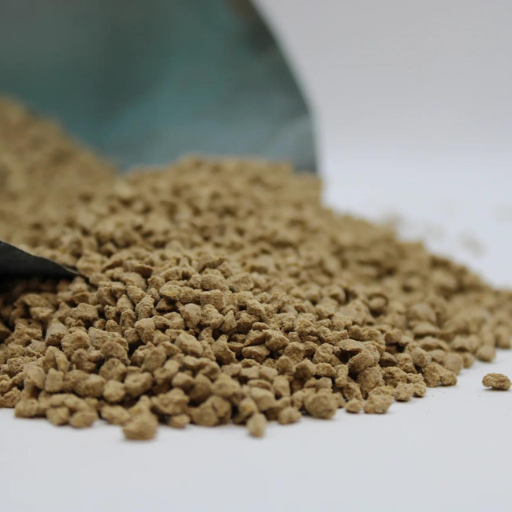
Best Organic Fertilizers for Leafy Vegetables
Organic fertilizers are the best choice when fertilizing leafy vegetables in pots and other containers as they promote good health and strong development. The following are some of these choices based on my findings.
- Compost: Soil structure as well as fertility can be enhanced using this technique by incorporating compost into your pots. Nutrient deficiency in soil can easily be achieved by introducing organic matter such as compost to supply balanced nutrients slowly.
- Fish Emulsion: This nitrogen rich liquid fertilizer is very important for leafy greens. Growth is promoted, and the overall status of plants improved when fish emulsion is applied every two to three weeks
- Worm Castings: By adding worm castings to your potting soil mix, you will enrich it with a gentle nutrient-rich amendment. Nutrient availability in the soil increases with increased microbial activity due to use of earthworm castings that also enhance plant resilience
In applying these organic fertilizers, a continuous supply of nutrients required by leafy greens leads to an abundance and healthy harvest.
Nutrient Requirements for Leafy Greens
Based on my research from various sources, it has been established that there are some major nutrients which should not miss in leafy greens’ diet namely; nitrogen, phosphorous, potassium, calcium and magnesium. Nitrogen is responsible for promoting luxurious green foliage hence being considered as one of its most critical element since phosphorous plays vital role in root development as well as overall plant health whereas potassium helps resist diseases and regulate water uptake. Calcium is important for cell wall structure that contributes greatly towards robust plant growth while magnesium is significant in photosynthesis which takes place within chlorophylls ensuring that balance of these elements remains intact within potted or containerized vegetables whose major constituents are green foliage.
How to Ensure Leafy Greens Have Healthy Growth
To have healthy growth of leafy greens, there are several things I do. First, the soil should be well-drained and rich in organic matter for me to get a good quality potting mix. This ensures that the plant roots have enough firm support and it can also retain water without becoming soggy. Additionally, I maintain watering consistency by keeping moist soils on the pots but not allowing them to dry out completely.
Fertilizing is an important process; thus, I use balanced organic fertilizer according to the recommended dosage on its label frequently. Through this, plants get their nutrients for robust development. Furthermore, I place my green vegetables where they receive at least six hours of sunlight a day as light is required for photosynthesis and growth as well.
Monitoring and managing pests and diseases is also crucial. Regularly checking if there are any pests or diseases on my crops ,then taking immediate measures through organic pest control methods or removing affected leaves helps me keep them healthy. By following these steps, I can ensure my leafy greens grow healthy and strong in pots and containers.
Frequently Asked Questions (FAQs)
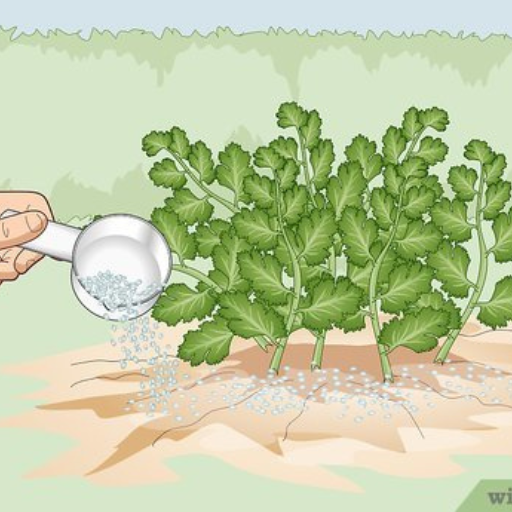
Q: What is the effect of NPK ratios on herb growth?
A: The proportion of nitrogen, phosphorus and potassium in fertilizer is shown by the NPK ratio. A higher nitrogen ratio leads to better leafing because it is crucial for herbs like cilantro, sage and rosemary. The right balance ensures that all parts of the plant grow well.
Q: What does potash contribute to herb fertilizers?
A: Herbs need potash or potassium for general good health. It regulates many plant processes, contributes to disease resistance and enhances overall quality and yield of the herbs.
Q: How can I ensure my garden soil stays healthy when using organic fertilisers?
A: To maintain soil health regularly test your soils around plants, add organic matter such as compost and use organic fertilisers in moderation; this enables a balanced environment for vegetable/herb farming.
Q: Are there specific organic fertilisers recommended for heavy feeders such as rosemary and thyme?
A: Yes. Heavy feeders including rosemary and thyme require fertilizers with higher nitrogen content. Feather meal or sulfate of potash are excellent choices for giving these herbs an extra boost.
Q: How do I put sulfate of potash into my gardening routine?
A: Integrate sulfate of potash through incorporation into planting soil or apply as a top dressing every fortnight. This helps improve availability of potassium hence strengthening agricultural plant growth rates and increasing yields.
Q: Which type of gardening gloves should I purchase if I’m using organic fertilizers?
A: Buy durable waterproof gloves suitable for handling organic fertilisers; They protect hands from soil and fertilizer while providing good grip strength during gardening tasks.






